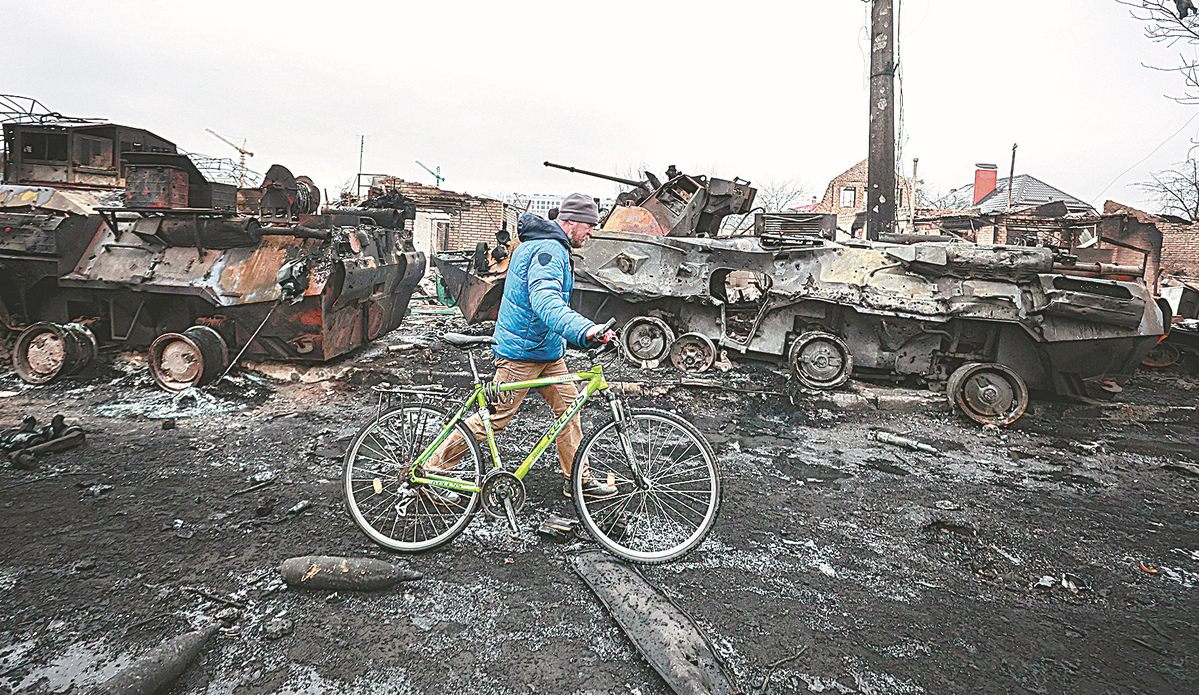Another set of futile Western sanctions


History shows that sanctions rarely achieve the kind of political objectives they are designed for, although they can cause fairly sizable economic damage to the sanctioned country.
Former US president John F. Kennedy sent his press secretary Pierre Salinger to buy 1,200 H. Upmann Cuban cigars before signing a sanction bill against Cuba in February 1962. Sixty years later little has changed in Cuba according to the United States' wishes. Nor have the on-and-off sanctions imposed on Iran since 1987 changed much of Teheran's behavior. Instead, the US is back to the negotiation table with Iran.
The sanctions announced by the US and its allies against Russia for triggering a conflict with Ukraine appear "tsunamic" in terms of scope and scale now. But their long-term impact is not likely to change Russia's trajectory of foreign policy in the region.
And although the sanctions will hurt Russia's economy as much as it has hurt Iran's, they will add yet another chapter to the history of the futility of sanctions. In fact, I doubt whether the sanctions will cause as much damage to the Russian economy as they did to Iran's.
Among the sanctions announced by the US and its allies, two are very significant-blocking Russia's central bank from using the country's nearly $630 billion foreign exchange reserves, which could reduce its ability to stabilize the Russian currency of ruble; and ejecting some Russian banks out of the Society of Worldwide Interbank Financial Telecommunication system, which provides highly secure communication for and dovetails with the many and varied operations of commercial banks in international transactions.
Russia has already withstood a round of severe sanctions, which the West imposed on it in 2014 following the Crimean incident, and has since developed into what is called a "fortress economy". That means it has been curtailing imports and trying to develop indigenous production capabilities that are relatively insulated from the global economy. And it has built large foreign exchange reserves of about $630 billion from the revenues from export of oil and gas.
True, the ban on Russia's central bank limits its ability to use some of its foreign exchange stockpile. But it cannot stop it from using all of it, because a large part of the reserves are in gold, which is not likely to be affected by the sanctions.
Indeed, the psychological shock the conflict and the sanctions have caused can spread panic across markets-already evident in people rushing to banks to withdraw money. But such shocks can be treated by using other regulatory means. In the short term, yes, the ruble is going to tumble, but after a while the Russian currency and economy are likely to stabilize.
Besides, the West's move to punish Russia through sanctions appear somewhat half-hearted when it comes to SWIFT, because transactions related to oil and gas trade are supposedly exempted. Is it because Europe gets about 40 percent of its natural gas and more than 25 percent of its oil from Russia?
By the way, in the global market, Russia accounts for about 13 percent of the oil and gas supply.
Overall, Russia still has a sizable set of trading partners that can help it solve some of its foreign currency problems. None of BRICS countries believe the sanctions will work. Even in the Arab world, the United Arab Emirates abstained from voting on a United Nations draft resolution co-authored by the United States condemning Russia for its "aggression" in Ukraine. And Argentina, a significant economy in the Americas, didn't jump onto the sanctions bandwagon.
The effects of the Russia-Ukraine conflict will be felt for a long time so will the wrangling in conflicted areas. But even after many years, the sanctions may not be able to drastically change the strategic situation in the region.
The author is a professor of economics and a research fellow at the Academy of China Open Economy Studies at the University of International Business and Economics.
The article reflects the author's views and not necessarily those of China Daily.
If you have a specific expertise, or would like to share your thought about our stories, then send us your writings at opinion@chinadaily.com.cn, and comment@chinadaily.com.cn.

































